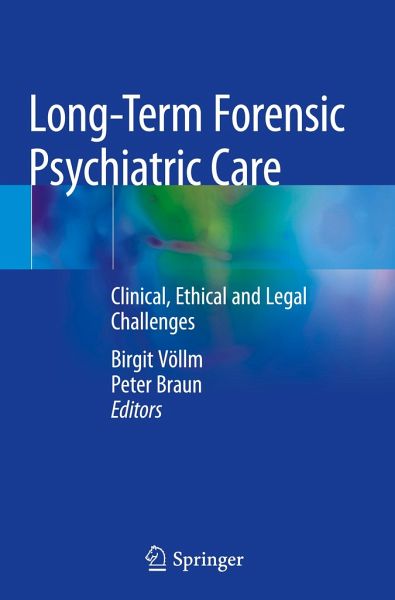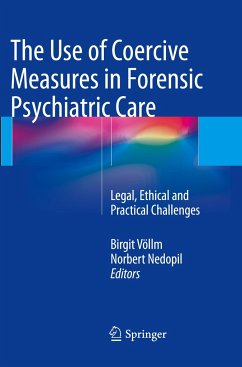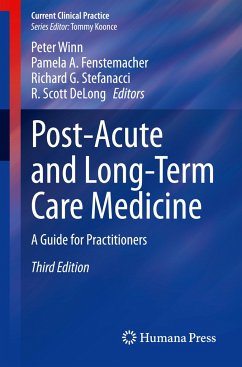
Long-Term Forensic Psychiatric Care
Clinical, Ethical and Legal Challenges
Herausgegeben: Völlm, Birgit; Braun, Peter
Versandkostenfrei!
Versandfertig in 6-10 Tagen
61,99 €
inkl. MwSt.

PAYBACK Punkte
31 °P sammeln!
This book provides an overview of forensic psychiatry, focusing on the provision of care in Europe as well as the legal and ethical challenges posed by long-term stays in forensic settings. Forensic psychiatric services provide care and treatment for mentally disordered offenders (MDOs) in secure in-patient facilities as well as in the community. These services are high-cost/low-volume services; they pose significant restrictions on patients and hence raise considerable ethical challenges. There is no agreed-upon standard for length of stay (LoS) in secure settings and patients' detainment per...
This book provides an overview of forensic psychiatry, focusing on the provision of care in Europe as well as the legal and ethical challenges posed by long-term stays in forensic settings. Forensic psychiatric services provide care and treatment for mentally disordered offenders (MDOs) in secure in-patient facilities as well as in the community. These services are high-cost/low-volume services; they pose significant restrictions on patients and hence raise considerable ethical challenges. There is no agreed-upon standard for length of stay (LoS) in secure settings and patients' detainment periods vary considerably across countries and even within the same jurisdiction. Thus far, little research has been conducted to identify factors associated with length of stay; consequently, it remains unclear how services should be configured to meet the needs of this patient group. This volume fills some of those gaps. Furthermore, it presents new research on factors associated with length ofstay, both patient-related and organisational. Various approaches to the provision of care for long-term patients in different countries are explored, including a few best practise examples in this specific area of psychiatry. The book also addresses the perspective of those working in forensic care by reviewing quality-of-life research and interviews with patients. The authors of this volume come from a range of professional backgrounds, ensuring a certain breadth and depth in the topic discussion, and even includes patients themselves as (co-)authors.












